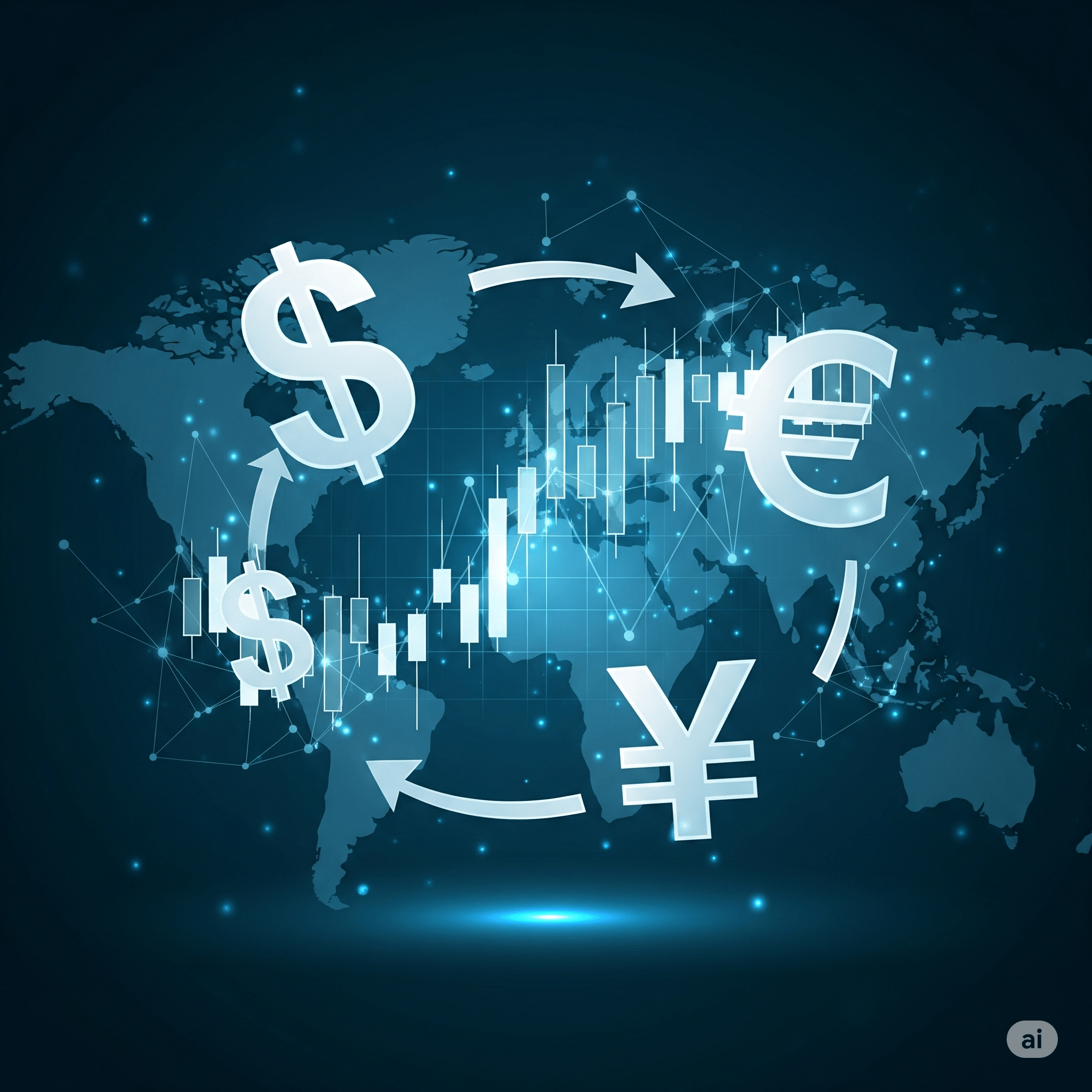What Does Currency Exchange Mean? A Beginner's Guide to Forex (2025)

Whether you’re planning a vacation to Europe, buying a product from an online store in Japan, or simply watching the global news, you’ve encountered the concept of currency exchange. But what does it really involve, and how does it create the largest financial market in the world?
At its heart, the answer to "what does currency exchange mean" is simple: it's the process of converting one country's currency into another's. But this simple act is the foundation of global trade, international investment, and the dynamic world of Forex trading.
This guide will break down the foreign currency exchange meaning in simple terms and show you exactly how the forex market works.
The Simple Meaning of Foreign Currency Exchange
Imagine you live in the United States and want to travel to the Philippines. You can't use your U.S. Dollars ($USD) to buy a coffee in Makati; you need Philippine Pesos (₱PHP). So, you go to a bank or a money changer and exchange your dollars for pesos.
The rate at which this transaction happens is called the exchange rate. For example, if the exchange rate is $1 USD = ₱58 PHP, you would get ₱5,800 for your $100.
This is foreign currency exchange in its most basic form: a practical necessity for international travel and commerce.
Beyond Travel: Introducing the Forex Market
While exchanging money for a trip is straightforward, this process also happens on a gigantic, digital scale in the Foreign Exchange Market, better known as Forex or FX.
The Forex market isn't a physical place. It's a decentralized global network where currencies are traded 24 hours a day, five days a week. Instead of exchanging money for travel, the participants in this market—banks, corporations, and individual traders—trade currencies to:
- Conduct international business.
- Hedge against risks from currency fluctuations.
- Speculate on the future direction of exchange rates to try and make a profit.
This speculative trading is what most people are talking about when they discuss Forex.
Forex: How It Works Step-by-Step
If the goal of a tourist is to get foreign cash for a trip, the goal of a forex trader is to profit from the changing values between two currencies. Here’s a simplified breakdown of how it works.
1. Currencies are Traded in Pairs
In the Forex market, you never just buy or sell one currency. You are always exchanging one for another. This is why they are quoted in pairs, like EUR/USD, USD/JPY, or GBP/USD.
Let's look at the EUR/USD pair:
- Base Currency: The first currency (EUR). This is the one you are "buying" or "selling."
- Quote Currency: The second currency (USD). This is the currency you are using to make the transaction.
If the price of EUR/USD is 1.08, it means 1 Euro is worth 1.08 U.S. Dollars.
2. Profiting from Price Movements
Traders speculate on whether the base currency will rise or fall in value against the quote currency.
- Going Long (Buying): If you believe the Euro will get stronger against the U.S. Dollar, you would buy the EUR/USD pair. If the price goes up from 1.08 to 1.09, you could close your trade for a profit.
- Going Short (Selling): If you believe the Euro will get weaker against the U.S. Dollar, you would sell the EUR/USD pair. If the price falls from 1.08 to 1.07, you could close your trade for a profit.
Because currency price movements can be very small, traders often use leverage, which allows them to control a larger position with a smaller amount of capital. While this can magnify profits, it also significantly magnifies the risk of loss.
What Causes Exchange Rates to Change?
Currency values are constantly fluctuating because of a complex mix of economic and political factors. Key drivers include:
- Interest Rates: A country's central bank raising interest rates often strengthens its currency.
- Economic Reports: Data on inflation, employment (like the Non-Farm Payrolls report in the U.S.), and economic growth (GDP) can cause significant volatility.
- Political Stability: Countries with stable political environments are generally seen as safer investments, attracting foreign capital and strengthening their currency.
Conclusion: From Simple Swaps to a Global Market
So, what does currency exchange mean? On one level, it's the simple act of swapping one currency for another to buy something abroad. On another, it's the engine of the forex market, a $7.5 trillion-a-day arena where fortunes can be made and lost based on the ever-shifting values of global currencies.
Understanding how forex works is the first step for anyone looking to participate in this exciting market, transforming a simple concept into a potential opportunity.
Let's Connect
Want to launch your own white-label, execution-only platform for easy investing, in months rather than years?
Contact Us
.avif)


